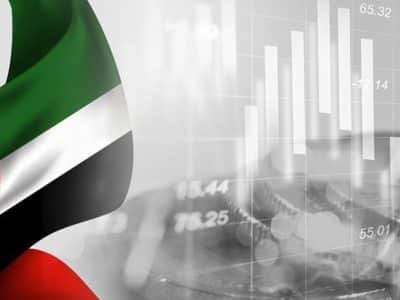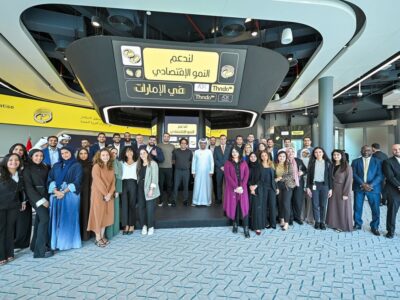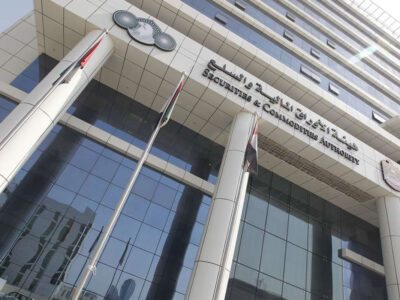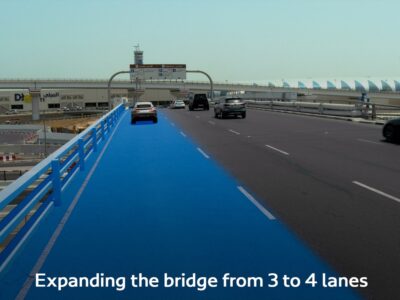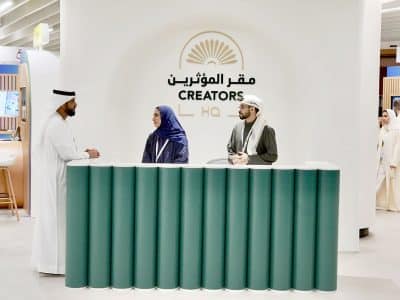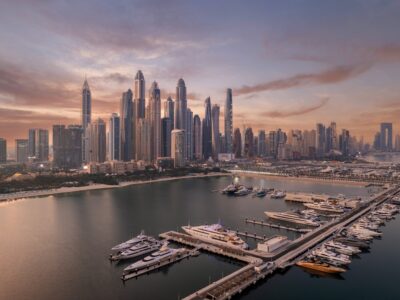GCC capital markets have undergone an unprecedented transformation, soaring to a collective market capitalisation of $2.3 trillion by the end of 2024, with international investors increasingly viewing the region as a long-term structural investment opportunity rather than a tactical allocation.
“The pace of reforms in this region has been phenomenal and stakeholders in each market have a powerful and persuasive story to tell global investors,” said Nabeel Albloushi, HSBC’s Regional Head of Markets & Securities Services for the Middle East North Africa & Türkiye (MENAT) region, speaking to Arabian Business at the HSBC MENAT Future Forum in Dubai this week.
“The region has momentum with strong growth, healthy public finances, strong demographics and lower inflation than many other parts of the world,” Albloushi added, highlighting why billions of dollars of fund inflows have been directed into the region’s asset markets from around the world.
At HSBC’s flagship regional event — the largest private gathering of international investors and market participants in MENAT — over 700 delegates including representatives from seven regional stock exchanges gathered to discuss the remarkable evolution of the Gulf’s financial landscape.
“We are living our golden era right now,” said Karim Tannir, Head of Banking for MENAT at HSBC Holdings. “If I have to pick one sector that demonstrates the growth and momentum in the region, I would have to say the capital markets, specifically the IPO markets…which has become world-leading, with issuances among the largest by volume.”
Faris Al Ghannam, CEO of HSBC Saudi Arabia, pointed to Saudi Arabia’s exceptional performance in this space, with 57 companies listed last year alone.
“The Kingdom is going through a major transformation, the Vision 2030 transformation,” Al Ghannam told Arabian Business. “We are right now in the middle of that execution phase, and that is what’s driving this fantastic and structural shift in the entire economy, particularly in the private sector, which naturally reflects on capital markets.”
The event, now in its ninth year, highlighted how the pace of reforms across the region has fundamentally altered the investment landscape, with market capitalisation expanding by an extraordinary $1.1 trillion over just the past four years.
Evolving market infrastructure
Regional exchanges are rapidly modernising their infrastructure to attract global capital. Saker Asllan, Chief Exchange Operations Officer of Abu Dhabi Securities Exchange (ADX), outlined how the exchange is enhancing access for international investors.
“[We] just launched our new ADX Group, which comprises the exchange and two new independent subsidiaries, AD Clear and AD Depository (AD CSD),” Asllan said. “With our enhanced technology and new platforms, we have become more and more aligned with international standards, positioning ADX to be more attractive to international institutions and international investments.”
The technological transformation is delivering tangible benefits for market participants. “The new technology platforms allow the delivery of new services and accelerate market efficiency from a trading perspective. The new market infrastructure further boosts our performance and resiliency by 400 per cent,” Asllan added.
These advancements extend to innovative trading features. “One of the most recent trading features we delivered is negotiated deals. From a post-trade perspective, we’ve seen heightened use of our stock lending and borrowing capabilities.”
The Qatar Stock Exchange is similarly focused on market development to support Qatar’s Vision 2030. Mohsin Mujtaba, Director of Product and Market Development at Qatar Stock Exchange, explained how the exchange is evolving through three strategic phases.
“The first phase of the implementation of the vision was building the national champions,” Mujtaba said. “The second phase has been about infrastructure development that we have seen over the last decade, with more than $300 billion invested into developing infrastructure.”
Qatar is now entering its third phase focused on economic diversification. “On the back of this whole LNG expansion program of Qatar Energy, the country’s gas output will increase by 85 per cent. Imagine now that you are an economy where there is not a lot of infrastructure spent to be done… but the revenues will go up by 60-70-80 per cent,” he explained, describing how this will accelerate economic diversification efforts.
Saudi market development
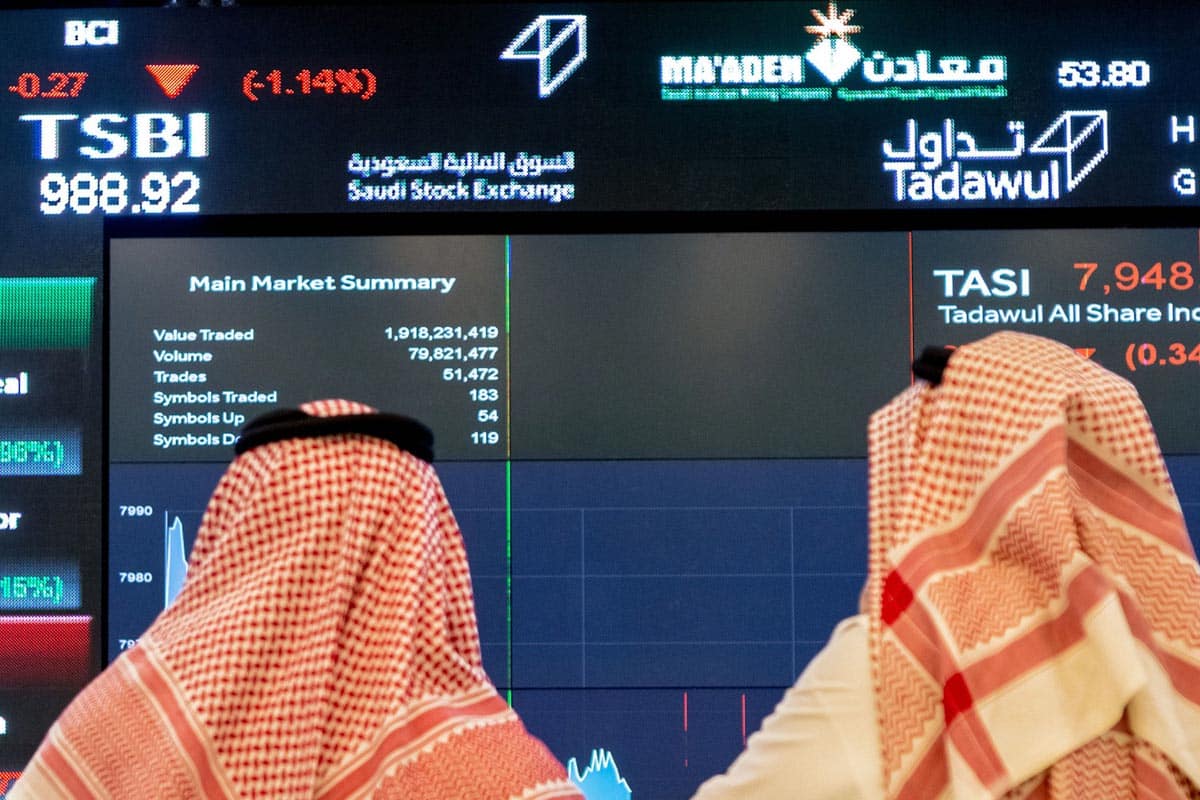
Expanding on Saudi Arabia’s remarkable market evolution, Al Ghannam outlined the three phases of the Kingdom’s Vision 2030 transformation.
“There was heavy upfront planning, and that is followed by heavy upfront execution, followed later on by delivery. The transformation which launched in 2016 is aiming at very aspirational objectives by the year 2030,” Al Ghannam added.
The Saudi market has shown remarkable resilience despite global volatility.
“The Saudi market is integrated with the rest of the world, as are the other regional markets, and despite the current global market volatility, we think the momentum is going to be resilient,” he noted.
The Kingdom has also developed the Nomu parallel market — a lighter-regulated alternative market designed specifically to facilitate smaller and growing companies’ access to public funding — to provide access for smaller businesses.
“Not all companies and IPO candidates will be fit for the main market. For smaller companies, for tech companies, for very high growth companies, Nomu is the right platform,” Al Ghannam explained, highlighting HSBC’s role in bringing “the first unicorn in tech into the Saudi exchange through that market.”
International investor response
The transformation of regional markets has attracted significant international capital, driven by a series of reforms to liberalise access for international investors, create new hedging instruments, and increase institutional investor participation.
According to Albloushi, who delivered the opening remarks at the forum, these reforms have been instrumental in the region’s financial evolution. “Billions of dollars of fund inflows into the region’s asset markets from around the world have been triggered by these reforms,” he explained.
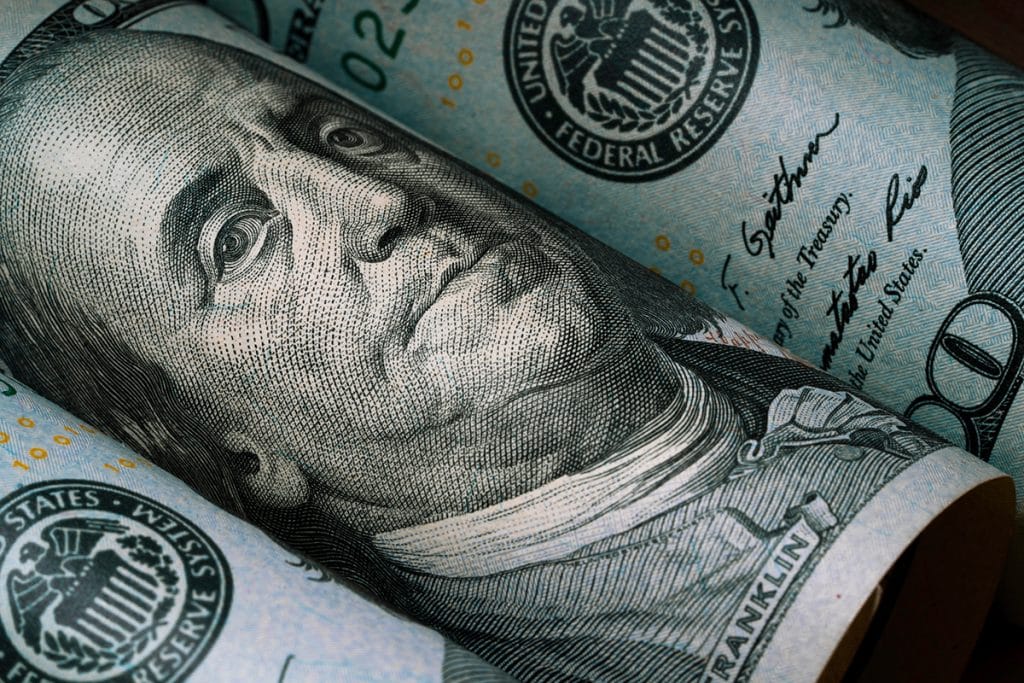
He elaborated that the reforms have led to the inclusion of key regional equity markets in benchmark indices tracked by major mutual and pension funds, supporting further inflows of long-term capital.
“What we’re seeing is unprecedented in terms of scale and scope. This is creating a virtuous cycle where increased international participation is driving further market development and sophistication.”
Asma Ben Salah, Head of Institutional Sales for MENAT at HSBC, provided concrete evidence of this trend: “We have seen massive growth in the international investors’ interest into these markets across multiple fronts.”
The scale of this growth is significant. “We’re seeing the investor interest in the primary issuances, where almost 30 to 40 per cent of the interest is coming from international investors. The volumes in the secondary markets have picked up a lot as well,” she noted.
She also highlighted product innovations driving this interest, such as stock borrowing and lending, ETFs, as well as derivative products
Positive investor sentiment
According to Camille Asmar, Head of Equity Sales for Europe and Emerging Markets at HSBC Global Banking and Markets, investor sentiment toward the region is overwhelmingly positive.
“The investor appetite is, I would say when it comes to this region and to the equities space, very bullish, very constructive,” Asmar said. “We’re seeing a new source of global investors and new source of money coming into MENA equity.”
Crucially, he said that this interest represents a structural shift, not a tactical allocation. “This is a long-term, structural story. There’s a clear vision put in place by the governments of the GCC that is not just a short-term vision, it’s a long-term vision.”
Asmar noted that this vision encompasses “structural growth” across “all aspects of the economy opening up,” including cultural changes.
When comparing emerging markets to developed markets, he stated that “EM equities are the most attractive place, specifically the Middle East and within that, the GCC.”

HSBC MENAT Future Forum
Rocio Echaque, Director and Head of Securities Services for MENA at HSBC Bank Middle East, highlighted the importance of connecting market infrastructure to investors and clients.
“We connect with the market infrastructure, with the regulators, with the exchanges, to provide best practices, leveraging our connections and our best-in-class world servicing model” Echaque said.
She said that for markets in the Middle East targeting developed status, direct feedback from investors is crucial. “For a market, and most of the markets in the Middle East are targeting to become developed at a certain stage, you need to get the feedback from investors directly.”
The MENAT Future Forum serves a vital role in this process. “That’s the beauty of our event. By bringing together investors and the market infrastructure, who are sharing feedback and all these ideas and opportunities… we can thrive even more.”
As GCC exchanges continue to evolve and attract global capital, the region appears poised for continued growth in both public and private markets. With IPO fundraising increasing 25 per cent and the fixed income market recording a 71 per cent year-on-year jump in bond issuances in 2024, the momentum shows little sign of slowing despite global economic and geopolitical headwinds.
The Forum ran for three days, featuring over 25 external speakers from different organisations and sectors, with discussions focused on the region’s $3 trillion capital spending plans, sustainability-linked issuances, and the role of blockchain in finance.

